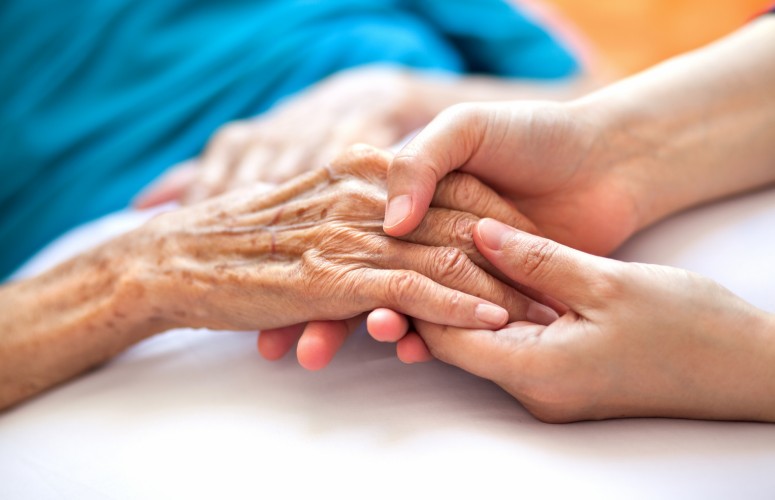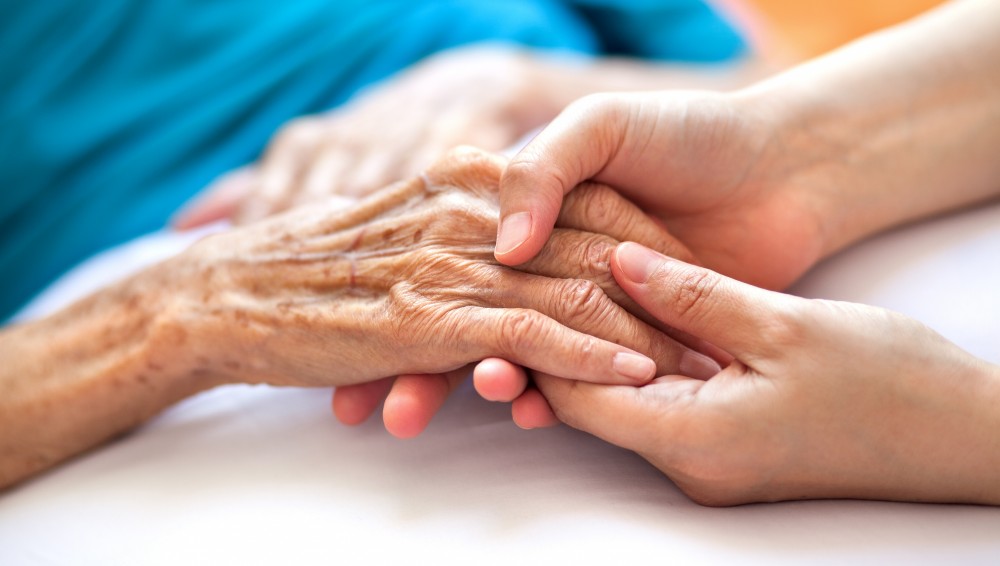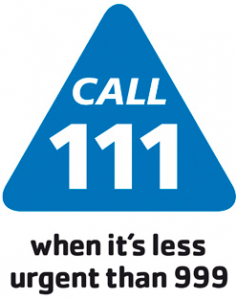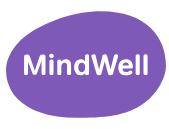If your doctor or other healthcare professional believe your relative or friend is in the last hours or days of life they will have explained this to you. The information below describes the care we give to people in their own homes or care home in the last days of life. It details how you can be involved and some of the changes you may see in your relative or friend. Their condition will be reviewed regularly, every few hours or at each visit if they are at home, to make sure they are comfortable and have everything they need at this time. The staff caring for your relative or friend will also want to make sure you feel supported.
At this time our priorities are to:
- Be compassionate and sensitive at all times
- Let you know of any change in your relative or friend’s condition
- Agree an individualised plan of care to meet your relative or friend’s needs during the day and night. This will include:
Food and drink
Comfort and symptom control
Emotional, social and spiritual support
- Ensure care decisions reflect your relative or friend’s wishes and are regularly reviewed
- Involve you and your relative or friend in decisions about care to the extent they and you want
- Work as a team, with you if you would like to be involved, to provide care and seek further advice whenever necessary
- Support you, and wherever possible respect your wishes, as well as those of your relative or friend.
This plan of care will be reviewed every day.
How you can help
If you are aware of any expressed wishes your relative or friend has shared that may help at this time or you would like to be involved in giving care please let us know. You may prefer not to discuss this or be involved in giving care. This will be respected.
Your relative or friend may have spoken to you about what mattered most to them at this time. These may include any religious, cultural or spiritual beliefs, or other wishes such as music, photographs and who they would like to be with them. If we need to be aware of these wishes please speak to one of us. If you would like support from a chaplain or other religious leader at this time and do not have any contact details we can offer information.
You can support your relative or friend in important ways such as spending time together, sharing memories and news of family and friends. If needed, the nurses will ask you for your contact details, so they can keep you updated about what is happening.
Please ask us if you are unsure about anything. We will be happy to answer any questions or concerns you may have and provide more information, or the Neighbourhood Team can also provide more information or contact other professionals if that would be helpful.
Who will be providing support?
The team providing care may vary depending on your relative or friend’s needs and where they are being cared for, but typically includes:
- GP
- Neighbourhood Team (community nursing and therapy teams)
- Nurses and night sitters from the Neighbourhood Night Service
- Care home nurses and carers
- Specialist nurse or doctor
- Social Worker or Health Case Manager
- Home care providers
The team will work together to provide care during the day and night. Specialist advice or support is available from both Leeds hospices if needed, even if they have not been involved previously in providing care.
Changes in the last days of life
The care each person needs is unique, however there are some common signs or changes in the last days and hours of life. These are described below. If you have any queries or need more information please ask.
Food and drink
We will support your relative or friend to eat and drink for as long as possible. As they become weaker they may find swallowing and the effort of eating and drinking too difficult, or they may not want to eat and drink. When a person stops eating and drinking, good mouth care is very important to stop their mouth feeling dry. We will explain to you how mouth care is given and ask if you would like to help give this care.
If we are concerned that your relative or friend is uncomfortable because they cannot eat or drink we may consider giving artificial fluids. This is not common, however in these circumstances we would discuss this with you, the GP, other members of the care team and your relative or friend, where possible, before making a decision.
Comfort and symptom control
Every time your relative or friend’s condition is reviewed, we will assess how comfortable they seem, provide personal care and change their position when needed. We will look for any changes in their eating and drinking, sleepiness or breathing and whether they seem in any discomfort, pain or distress.
A doctor or other healthcare professional will assess your relative or friend’s medication needs and decide on suitable drugs, the correct dose and when this should be taken. Medicine that is not helpful at this time may be stopped and new medication prescribed. Your relative or friend may not experience any discomfort, however if they do our priority is to control their symptoms. Having medication available will enable the nurses to respond promptly. We will offer to explain how we use the medication prescribed and the likely effect.
If your relative or friend is unable to swallow, a syringe pump may be needed to give medication to help keep them comfortable. If you have any queries or concerns about possible symptoms, medication or use of a syringe pump we can discuss these with you.
Sleeping and drowsiness
Your relative or friend may spend more time sleeping or be more drowsy when awake. As they become weaker they are likely to become unresponsive. This change is a gradual, natural process and simply being together can be a comfort. If they show any sign of distress or restlessness we can give medication to help with this. The medication used can be sedating, however only enough to control the symptom will be given and no more.
Changes in breathing and colour
In the last hours of life breathing patterns may change and sometimes there are long pauses between breaths. Breathing can also appear laboured. The skin can become pale, moist and slightly cool to touch. This is part of a gradual, natural process as the body becomes weaker and it is unlikely your relative or friend is aware of these changes.
You may hear a rattle when your relative or friend breathes. This can be caused when mucus or secretions build up in the airways. We may change their position or give medication to help with this. The noise itself is not a sign of distress, though we understand that some people may find it upsetting.
If you have any concerns or queries about any aspect of your relative or friend’s care, please ask.




